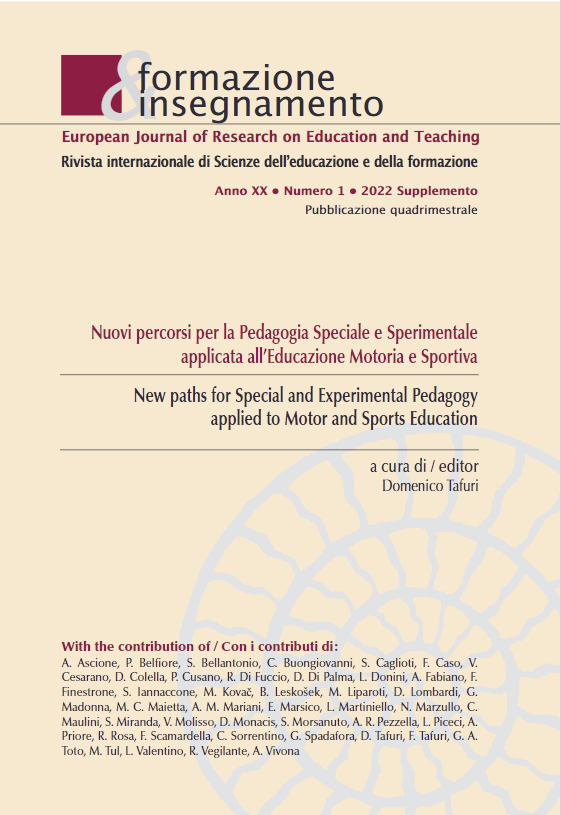Life skills development in adult cognitive disabilities through sport
DOI:
https://doi.org/10.7346/-feis-XX-01-22_25Palabras clave:
Volleyball, Constancy in sports practice, Autonomy, Self-efficacy, Cognitive DisabilitiesResumen
The aim of this research is to investigate the circular relationship between perception, cognition and action in direct interaction through volleyball in a sample of adult athletes with cognitive disabilities. Self-perception will be analysed, in relation to individual sports goals and daily life management. The sample consisted of 71 items of which, 57 who consistently practiced motor activity, while the control group consisted of 14 items who did not practice motor activity. Athletes were given the Perceived Self-Efficacy Scale in complex problems managing (Farnese, Avallone, Pepe, Porcelli, 2007). As research shows, in volleyball the body and mind are directly affected by the action of other teammates, so the ability to adapt to situational variables, developed the ability to manage complex problems of athletes with cognitive disabilities. Compared to the control group all areas examined have a statistically significant gap.
Descargas
Publicado
Cómo citar
Número
Sección
Licencia
Derechos de autor 2022 Pensa MultiMedia

Esta obra está bajo una licencia internacional Creative Commons Atribución 4.0.
Formazione & insegnamento se distribuye bajo la licencia Atribución 4.0 Internacional (CC BY 4.0).
Para más detalles, por favor refiérase a nuestra Política de Repositorio y Archivo, así como a nuestros Términos de Derechos de Autor y Licencia.





